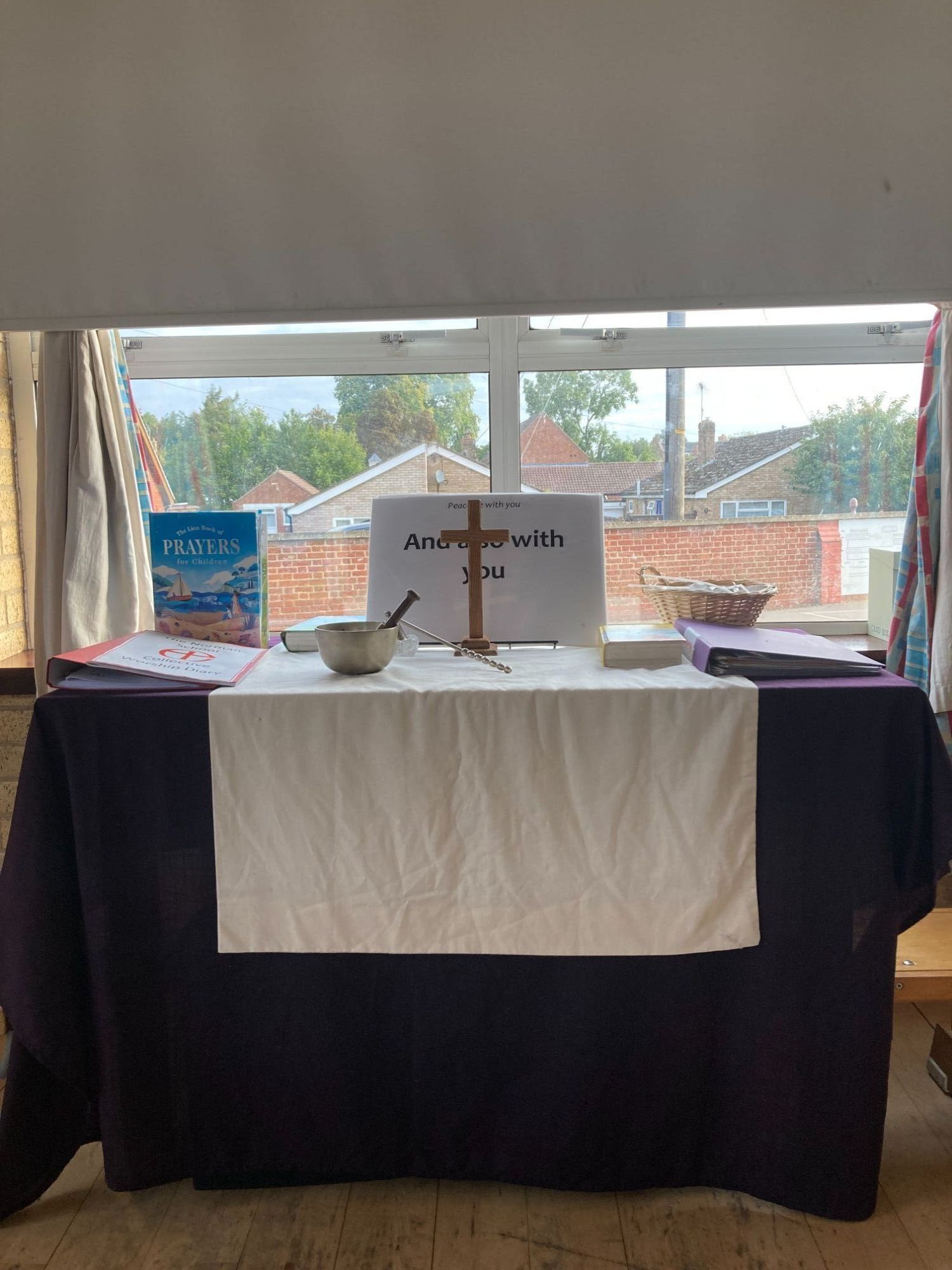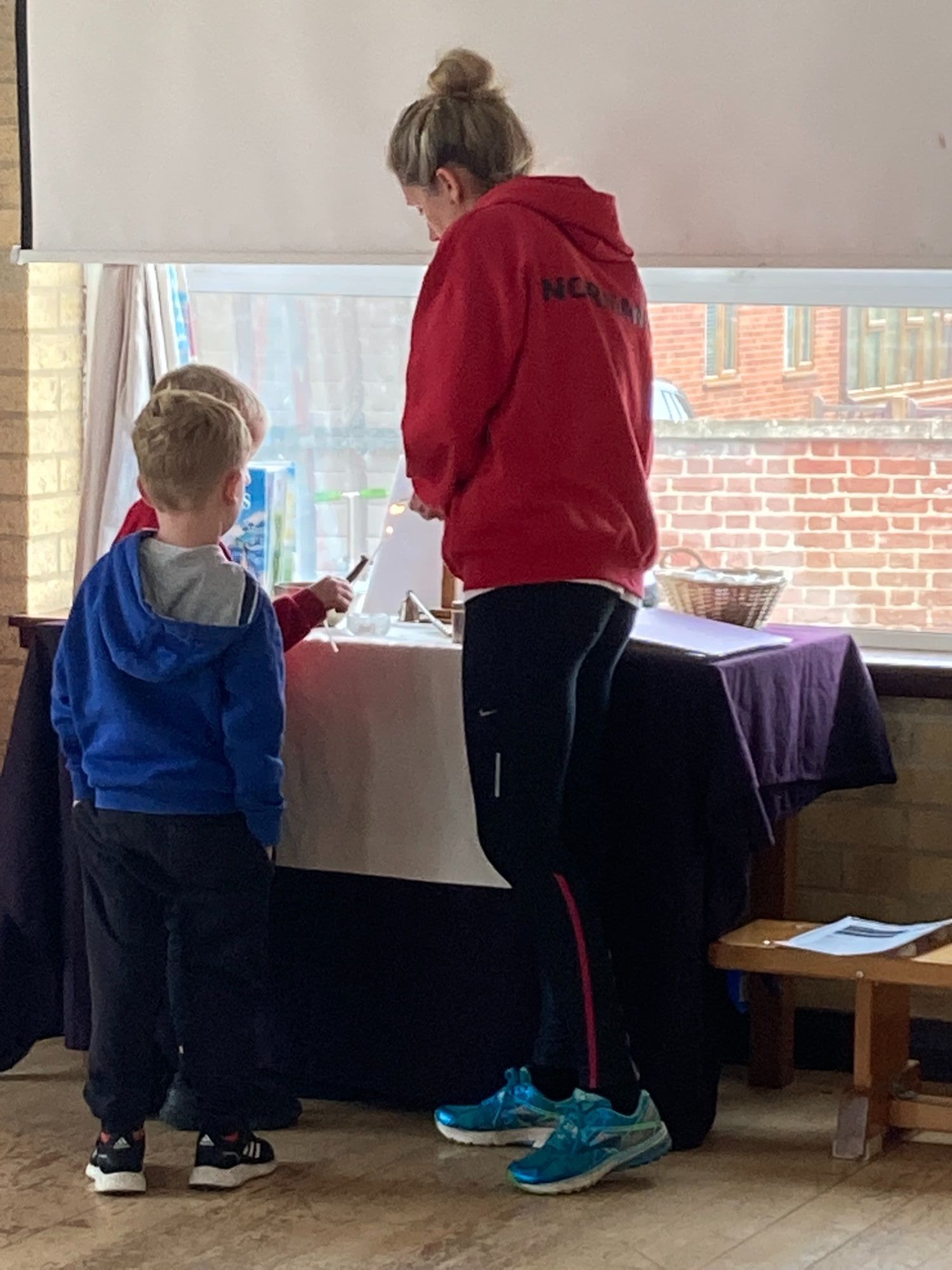
Church School
We pride ourselves at Norman CE Primary School on reflecting The Church of England's Vision for Education.
Christian Distinctiveness
Our school has a distinctively Christian character and ethos which is central to our school vision statement.
Our vision is to ensure that children of all faiths and none can be the best that they can be, in an environment where everyone is valued, respected and challenged. In our school, individuals are supported in their personal journey of learning, growth and development, within an ethos of nurture, encouragement and love.
At the Norman CE Primary School, we have a clear belief that learning will equip our children for their future. We aim to do this through the three strands of: valuing every child and staff member, nurturing holistically, growing and learning together in partnership. Every child is valued, supported and challenged to achieve their very best outcomes within and outside of the curriculum. In a village school environment, staff get to know the children well, developing positive relationships in an enabling environment.
Our school vision is based around the Christian belief that:
‘A cord of three strands is not easily broken’ Ecclesiastes 4:12. The Bible tells us that “though one may be overpowered, two can defend themselves. A cord of three strands is not quickly broken.”
Christian distinctiveness is explicit and implicit throughout Norman school life, relationships and the curriculum. All members of the school community experience Christianity through the life of the school, as well as through the taught curriculum.
Our understanding of the unique worth of every member of our school family, our local community in Northwold, and God's world, is central to all that we do at Norman CE Primary. It effects how we treat our children, our broad curriculum offer, our charitable works, and our commitment to developing our pupil, family and staff voice. We want every member of our school community to know that every person is made in the image of God: every person is valued and every voice counts.
The content of our school curriculum has also been carefully chosen to ensure that it reflects our values of Ready, Respectful and Safe. There is, for example, an emphasis on water safety and self-rescue in our swimming lessons in year 6 as we live so close to a river to keep our pupils safe. During RE and PSHE children learn about different cultures, religions and types of families to enable them to show respect to all god’s people and show respect for different views and interpretations.
Our Collective Worship draws on Christian teachings and beliefs whilst being mindful of children’s wider beliefs and non-beliefs. Worship is inclusive and delivered in a way that enables all members of the school community to feel able to be part of the experience, and all staff and children attend. Collective Worship begins with the lighting of a candle and a blessing read by a pupil. Worship has a time of reflection, prayer and during singing assemblies - songs. Year 6 pupils set up collective worship and lead in ensuring all other pupils are involved.
RE at Norman is reflective, creative and thoughtful. Pupils make a well-informed response to Christianity and respect those of all faiths (and none) in their search for God.
We follow the Emmanuel Project curriculum. Christianity is the majority study in RE and this draws on the richness and diversity of Christian experience in the breadth of its Anglican and other denominational forms, and in the variety of worldwide forms.
Collective Worship
As parents and carers of pupils of Norman C E Primary School, you may have some questions about Collective Worship.
What will my child experience in Collective Worship at Norman CE Primary School?
As a Church of England School, Collective Worship is at the heart of school life. It happens every day, in various different forms, which give all children an opportunity to learn, celebrate and respond to our Christian Values and Vision. When we have Collective Worship, we assemble as a community and have time to reflect and think about the chosen Value for that half term and it is open to all faiths and none. Children are invited to think deeply about subjects that matter to us as a school and also about wider issues in the global community. Songs are Christian in content and add another dimension to our worship.
"From my own observation children at the Norman school are treated equally, plus shown Christian values by the staff. I feel very strongly about how important it is to lead by example!!"
" The best part of weekly celebration assembly is when they do the citizenship book."
What is Collective Worship?
It aims to give pupils and school staff alike the opportunity to:
- Express praise and thanksgiving to God.
- Foster respect and deepen spiritual awareness.
- Reflect on the character of God and on the teachings of Christ.
- Affirm Christian values and attitudes.
- Share each other's joys and challenges.
- Celebrate special times in the Christian calendar.
Collective Worship is legally required to take place every school day and ‘shall be wholly or mainly of a broadly Christian character’ (1988 Education Act). https://www.churchofengland.org/about/education-and-schools/church-schools-and-academies/collective-worship
What makes it C of E (Church of England)?
Norman CE Primary School’s Collective Worship is based on the liturgy or pattern of Church of England Services. This helps staff and children to become familiar with its language and traditions, so when they visit St Andrew’s Church, they can understand and take part in their services in a meaningful way.
What will my child get from Collective Worship? Will they be made to sing and pray?
Collective Worship is set up so that all children and adults, of all faiths and none, are invited to find out not only what Christians believe about God, the world and themselves, but to have reflection time, wondering about the big questions of life and how these reflections impact on their own lives. The messages and values we discuss are based around our values of READY, RESPECTFUL, SAFE, which we believe support all children in becoming positive citizens within our local, national and global community.
Staff and pupils alike value the time of quiet and stillness as a way to bring the community together. With both singing and prayer, we invite children to participate, learn about and respect the beliefs of all faiths and none.
SIAMS Inspection
Our most recent inspection occurred in November 2022 and we are very proud of the findings. Our grading was Good overall and it was found that:
"Warmth and welcome are a feature of this school which is deeply rooted in its rural
community. Every child and family are known well, with a focus on meeting individual
needs."
"A SIAMS inspection focuses on the impact of the Church school's Christian vision on pupils and adults. This involves looking at the school’s Christian vision, the provision the school makes because of this vision and how effective this provision is in enabling all pupils to flourish. Church schools will employ a variety of strategies and styles appropriate to, and reflective of, their particular context in order to be distinctively and effectively Christian in their character and ethos. SIAMS inspectors therefore do not look for a set template of what a Church school should be like, but rather take the particular context of the school into account and base their evaluation on the outcomes rather than the process.
The Evaluation Schedule has one inspection question: “How effective is the school’s distinctive Christian vision, established and promoted by leadership at all levels, in enabling pupils and adults to flourish?”
This is explored through seven strands:
- Vision and Leadership
- Wisdom, Knowledge, and Skills
- Character Development: Hope, Aspiration, and Courageous Advocacy
- Community and Living Well Together
- Dignity and Respect
- Impact of Collective Worship
- Effectiveness of Religious Education.
One overall grade is awarded reflecting the contribution of these strands to the flourishing of pupils and adults in a Church school. In addition a standalone grade is awarded in all schools for collective worship and in voluntary aided (VA) schools and former VA schools for religious education (RE). This grade is based on teaching and learning alone."
For more information about SIAMS https://www.churchofengland.org/about/education-and-schools/church-schools-and-academies/siams-inspections





